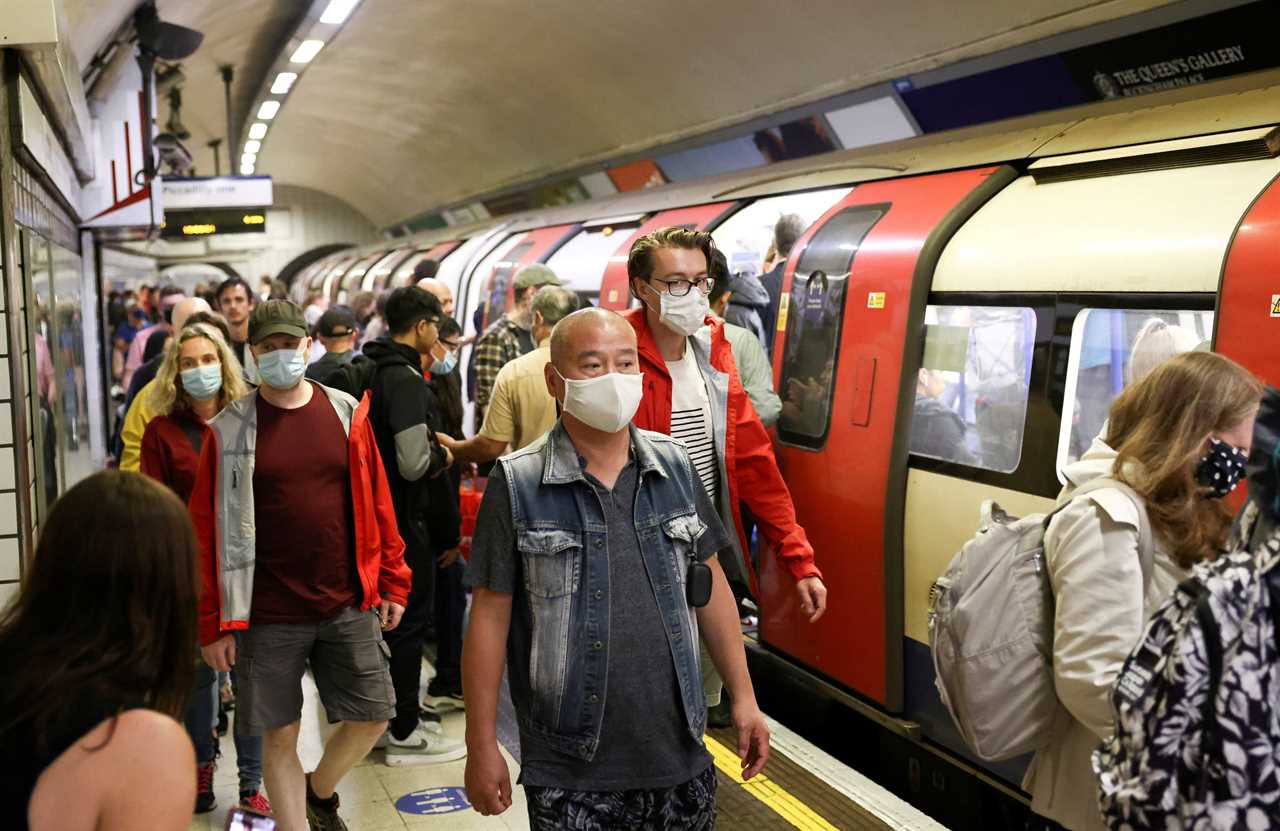DOUBLE-jabbed Brits suffering through what has been dubbed the “worst cold ever” might actually have Covid.
Experts have warned the symptoms of Delta in those fully protected against the virus can be easily confused with a cold.

The only way to be sure is to have a Covid test, otherwise you risk passing on the killer bug.
More and more people are being struck down with the nasty illness, and taking days to recover.
This cold feels so bad in part because we have lost the immunity we had built up each year against the standard winter bugs – after social distancing and not mingling in the pandemic.
But Professor Tim Spector, lead scientist on the ZOE Covid Symptom Study App, warned it may also feel so horrible because it is Covid.
Research from the app shows the top five virus symptoms for people who have had both jabs are a headache, a runny nose, sneezing, sore throat and loss of smell.
He warned: “The UK still has more cases than most of Europe and I believe this is for two main reasons; the first is a lack of masks and social distancing and the second is because we’re ignorant of the symptoms.
The professor told The Mirror: “We should be looking out for things like sore throat, runny nose and sneezing. The classic three – cough, fever and anosmia are rarer these days, yet the government has done nothing.
“By not updating advice, we’re letting people into care homes, schools, workplaces and large gatherings displaying known signs of Covid.
“Roughly, 1 in 80 people in the UK have Covid. If we don’t wake up to the fact these cold-like symptoms could be Covid, we will continue to keep numbers high, putting unnecessary strain on an exhausted NHS.”
Dr Philippa Kaye, a London GP, confirmed cold case numbers are higher than usual for this time of year all over the country.
She told the BBC: “We’ve actually been seeing a rise in the number of coughs and colds and viral infections.
“We are mixing in a way that we haven’t been mixing over the past 18 months.
“During those first lockdowns, we saw numbers of other [non-Covid] infections fall. We think that that was primarily due to the restrictions on meeting up.”
KNOW THE SIGNS
It is also not safe to assume you don’t have Covid just because you are double jabbed.
Research has shown that as time goes on following your jabs, protection against catching the virus falls significantly.
Prof Spector added: “It’s easier to work at home, just spend a couple of days if you are feeling under the weather without spreading it around and get a test.
“If you do have a cold just think, it could be Covid, keep your distance before whether you know it is or not.”
A recent study in the New England Journal of Medicine found effectiveness against symptomatic disease dropped from 90 per cent to 65 per cent in the US against Delta.
As the days get colder, Professor Anthony Harnden, the deputy chair of the Joint Committee on Vaccination and Immunisation, believes the situation will get worse.
WINTER IS COMING…
He said that low flu immunity “could be potentially a bigger problem this winter than Covid”.
“We’ve had a very, very low prevalence of flu for the last few years, particularly virtually nil during lockdown, and we do know that when flu has been circulating in very low numbers immunity drops in the population, and it comes back to bite us,” he said.
It comes as deaths from flu could reach 60,000 this winter after lockdowns and social distancing saw immunity plummet, health bosses have warned.
It is thought the UK could see the worst fatality rate in 50 years as Brits’ ability to fight the bug has been weakened after orders to stay at home.
Deputy chief medical officer Professor Jonathan Van-Tam said: “Not many people got flu last year because of Covid restrictions, so there isn’t as much natural immunity as usual.
“We will see flu circulate this winter; it might be higher than usual and that makes it a significant public health concern.”
Many viruses – including flu, RSV and norovirus – spread more during the cold months.






